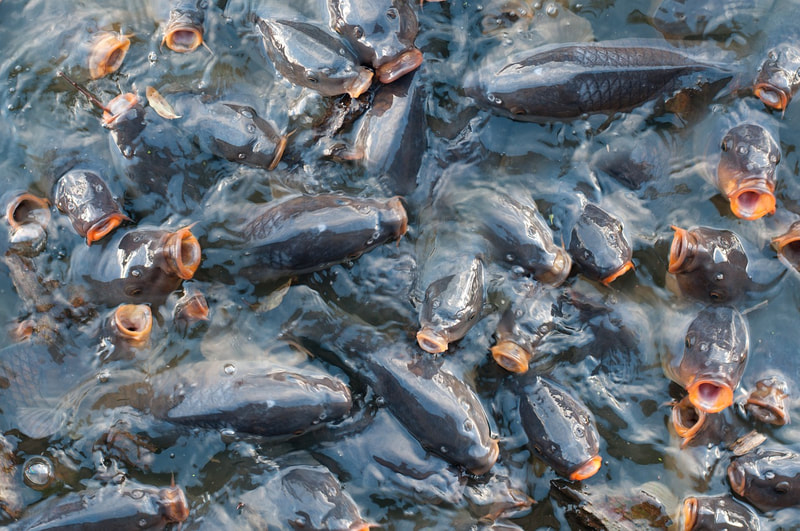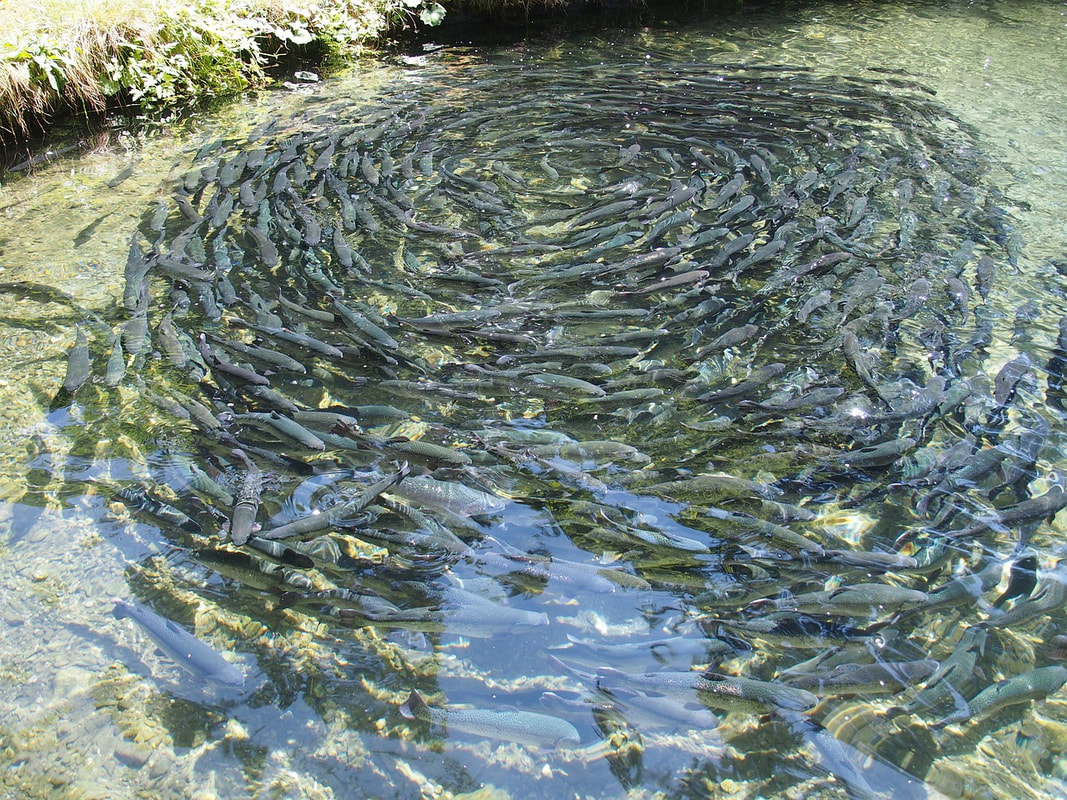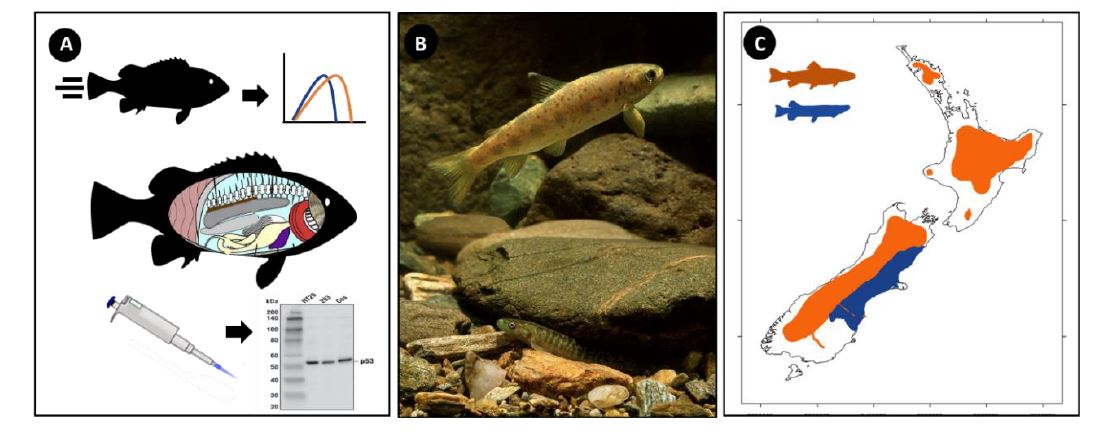The Rodgers Lab performs cutting-edge research in the field of conservation and comparative physiology. We integrate a wide range of physiological tools (respirometry, performance testing, cardiovascular physiology, biochemical assays, field-monitoring, niche-modelling and meta-analyses) to investigate high-profile basic and applied questions.
Stressor Interactions in a Changing World
Anthropogenic impacts on the global environment are now so ubiquitous and multi-faceted that single-factor studies hold little predictive power. To survive, species must navigate a complex milieu of stressors that include- climate warming, contamination, acidification and hypoxia, with stressors often interacting in complex ways. Global climate change is expected to exacerbate the multitude of stressors organisms face, particularly for aquatic species in higher latitude regions, such as New Zealand. Essential to our ability to generate robust predictions of how New Zealand’s fishes will fare in the face of climate warming, is an understanding of the physiological mechanisms these organisms use to respond to multiple threats. In particular, our research explores how exposure to stressors modulates a species’ capacity to cope with climate warming. Specifically, we explore the impact of stressors on thermal acclimation capacity, heat tolerance, and thermal reaction norms of swimming performance, metabolism and lower-level physiological functions.
Rearing Resilient Aquaculture Species
Fish losses have profound socioeconomic impacts. Approximately 40% of the world's population are reliant on both wild-caught and farmed fish as their primary source of protein, and commercial and recreational fisheries are important contributors to the global economy. The aquaculture industry in under threat as climate change progresses and mass fish kills become too frequent. The Rodgers Lab is investigating ways to rear ''climate change-proof'' fish which can tolerate warmer temperatures. In particular, we are exploring how brief exposure to mild stress may alter fish physiology and transiently provide increased heat tolerance.
Elucidating the ecophysiological 'Achilles heel' of native and invasive species
The Rodgers Lab uses a comparative approach to examine the diversity of biochemical and physiological strategies used by invasive and native freshwater fishes. Invasion of freshwater habitats by non-native species is an issue of national importance in Australia. Key to their success, invasive species can generally tolerate a broad range of environmental conditions, whilst native species have evolved to thrive in their natural niche. The eco-physiological constraints placed on these species and their capacity to cope with climate change may therefore differ greatly. We are comparing the eco-physiological constraints of both invasive and native fishes under current conditions and future climate change scenarios. Eco-physiological data will be compiled and integrated into mechanistic niche models to predict how geographic ranges of invasive and native fishes will change under climate warming scenarios.






